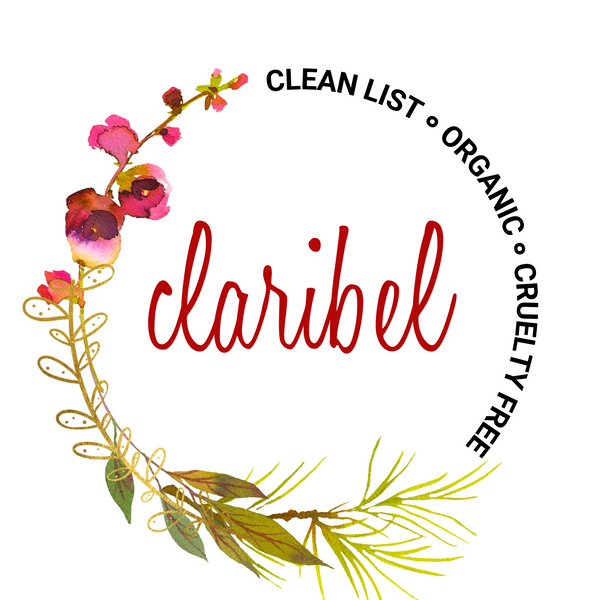
Why Does My Skin Get Sensitive Sometimes?
At some point in everyone’s life, we’ve experienced an adverse reaction to an ingredient or have gone through a time period of skin sensitivity and discomfort.
Many times stress can cause us to have issues with hives or other skin conditions, while other times dietary choices or coming in contact topical with something can trigger a skin reaction.
Below are some medically proven signs to sensitive skin, and how to determine the difference between a sensitive skin moment or an allergic reaction.
As will all skin issues, it’s thought to be best if you can find natural and plant derived products or ingredients to alleviate the symptoms and promote natural healing. There are so many options on the market, you can certainly find a solution within your budget.
Let’s get started with 9 signs that your skin might be classified as sensitive.
Our Intense Hydration Face Cream is an extremely soothing formula that will help quell sensitive skin.
9 Signs You Have Sensitive Skin
Your skin is reactive.If you have sensitive skin, you probably notice you develop symptoms in response to certain triggers. Common triggers include soaps, detergents, fragrances, perfumes, skincare products, and household products. In addition, exposure to cold, sun, and wind can trigger flares.
You notice some redness.Most people with sensitive skin deal with some amount of redness. This can take the form of a red rash, red bumps, blushing and flushing, or even red dilated blood vessels called telangiectasias. Usually, the redness will go away after removing the irritant or with minor treatment.
Your skin is itchy.Your sensitive skin may often feel itchy and tight, especially after cleansing with products that are too harsh. Using hot water can make it worse. You may especially notice itching when the air is cold and dry. Giving in to the itch by scratching can lead to more irritation and even infection.
You feel stinging and burning.Your skin may sting and burn when you cleanse with or apply products that are too strong for you. This is especially common with gels, products with alcohol, and many acne or anti-aging products. While this is usually temporary, it can be very uncomfortable and even painful. If something causes stinging or burning of your skin, remove it as quickly as possible and rinse with cool water.
Your skin is dry.While people with sensitive skin may have problems with breakouts, they often have underlying dryness instead of oiliness. Having very dry skin can also be a cause of the sensitivity, as very dry skin doesn’t protect the nerve endings in the skin very well. You will likely have more problems with dry skin in cold, dry weather and when exposed to wind. Using a gentle moisturizer and protecting your skin from the elements can help fight it.
You often develop rashes.Sensitive skin may react with a red, dry, flaky, or bumpy rash when exposed to a trigger. This is especially true for products that are left on your skin, such as facial creams. You may develop a rash very quickly after contact. Rashes can be uncomfortable, unsightly, and stubborn.
You’re prone to breakouts.If you have sensitive skin, you may develop breakouts that look like acne with red bumps and pustules. You might try an acne wash or cream to treat the breakouts only to find it makes things worse. Fortunately, your doctor can help sort it out and get you on the right track. If you have sensitive skin and acne, you may also need your doctor’s help to find the right products to keep your skin clear without causing irritation.
Your skin flakes and peels.Especially if you have dry skin, you may deal with a lot of flaking and even peeling. This can be embarrassing and can sometimes look like dandruff. If the peeling is deep, or if you pick at it, it can leave raw, painful skin that is at risk for infection and even scarring.
You sunburn easily.Your sensitive skin is more susceptible to the harmful effects of the sun. If your skin is already irritated or peeling, you are at an even higher risk. You should always wear sunscreen when you’re outside, especially on your face. Since some ingredients in sunscreens can cause allergic reactions, look for ones with the ingredients zinc oxide or titanium dioxide. You’ll also want to choose a sunscreen that is broad-spectrum and has SPF 30 or higher.
Our Intense Hydration Face Cream is an extremely soothing formula that will help quell sensitive skin.
The Structural Side to Sensitive Skin
Skin sensitivity actually has to do with the fatty outer layer of your skin.
We all have a protective fatty outer layer on our skin. This is often called the lipid (fat) barrier, and it performs two main jobs: keeping water in, and keeping potentially damaging things, like UV rays, wind, heat, and harsh chemicals, out. In people with sensitive skin, this barrier is typically weaker, thinner, and more easily damaged, making it easier for irritants to penetrate the skin and cause inflammation.
You can think of your skin barrier like a brick wall put together with mortar between the skin cells. That intracellular lipid mortar is partly composed of a form of lipids called ceramides. In sensitive or damaged skin, that mortar is weak or missing in some spots, making the barrier more permeable and the skin underneath more vulnerable. People who have a thin lipid barrier absorb products more deeply, which is why they are often more reactive to skin-care ingredients.
On the flip side, having a thin lipid barrier means it’s also easier for moisture to escape. This is why dryness and sensitivity often go hand-in-hand.
How to Know if it's Sensitive Skin or an Allergic Reaction
Meanwhile, you may have perfectly ordinary skin—or dry skin, or oily skin, or acne-prone skin—and don’t even think about the challenges that people with sensitive skin experience on a regular basis.
Until…you experience an allergic reaction. In many cases, some substance has triggered a reaction in your body known as a histamine response. Histamine is a natural chemical that’s released during an allergic reaction. Histamine can cause a number of symptoms that we tend to associate with an allergic reaction, including a runny nose, itchy watery eyes, wheezing or coughing, and even stomach cramps.
Some common skin allergy diagnoses include:
- Hives. Also called urticaria, hives are welts that tend to develop in the superficial layers of the skin as a result of the immune system being triggered and releasing that pesky histamine.
- Angioedema. Angioedema is very similar to hives, but the swelling develops deep underneath the skin, instead of on top of it. It’s possible to experience both angioedema and hives at once.
- Allergic contact dermatitis. Direct contact with an allergen causes this response. If you’ve ever suffered through a case of poison ivy after dashing through the woods, or you developed a rash after wearing a bracelet made with nickel, you’re familiar with this type of allergic reaction. You might have a red swollen rash, or it might be bumpy, itchy, or scaly—or all of the above.
Atopic dermatitis, also known as eczema, is another common type of allergic reaction. However, unlike other types of allergic reactions like hives, it’s not caused by a histamine response. In fact, the exact cause is still unclear, although it’s often linked to the presence of asthma or food allergies. Regardless of the cause, it can make your skin itchy and dry, and if you scratch it, it can get infected, weeping fluid that dries into crust.
Other Skin Conditions that Look Like Sensitive Skin
Eczema (atopic dermatitis) affects your skin’s ability to protect you from irritants, like germs in the air or chemicals in your laundry detergent. This can make you extra sensitive to products that don’t bother other people, like soaps and cosmetics.
The symptoms of eczema vary widely from person to person. You could notice any of the following:
- dryness
- itchiness
- small bumps that may leak fluid and crust over
- red to brownish-gray patches of skin
- raw, swollen skin
- thick, cracked, or scaly skin
Rosacea is a common skin condition that affects the face. Early signs include blushing or flushing more easily than other people. Rosacea causes extreme sensitivity. Some products may cause immediate burning and stinging.
Other symptoms include:
- redness of the face, ears, chest, or back
- a sunburned look
- small bumps and pimples
- visible blood vessels
Our Intense Hydration Face Cream is an extremely soothing formula that will help quell sensitive skin.

